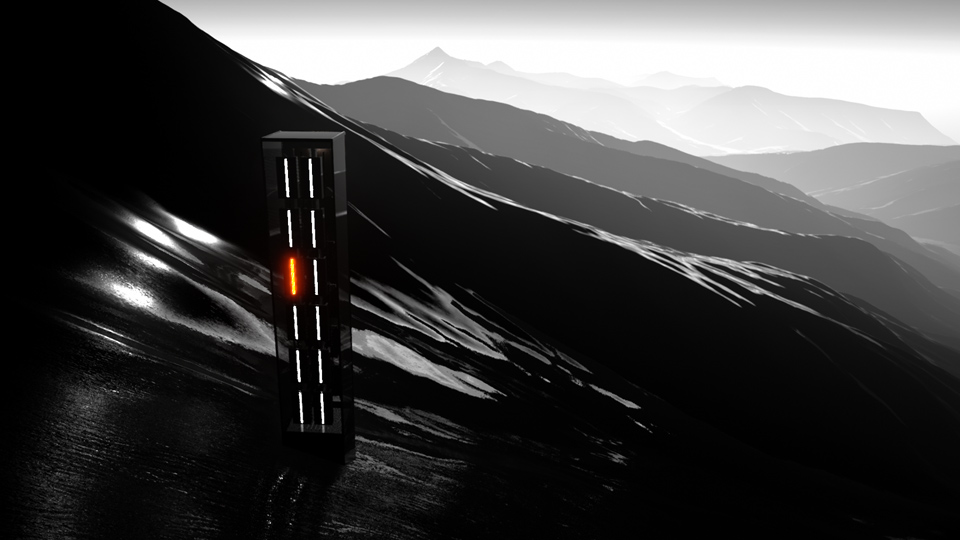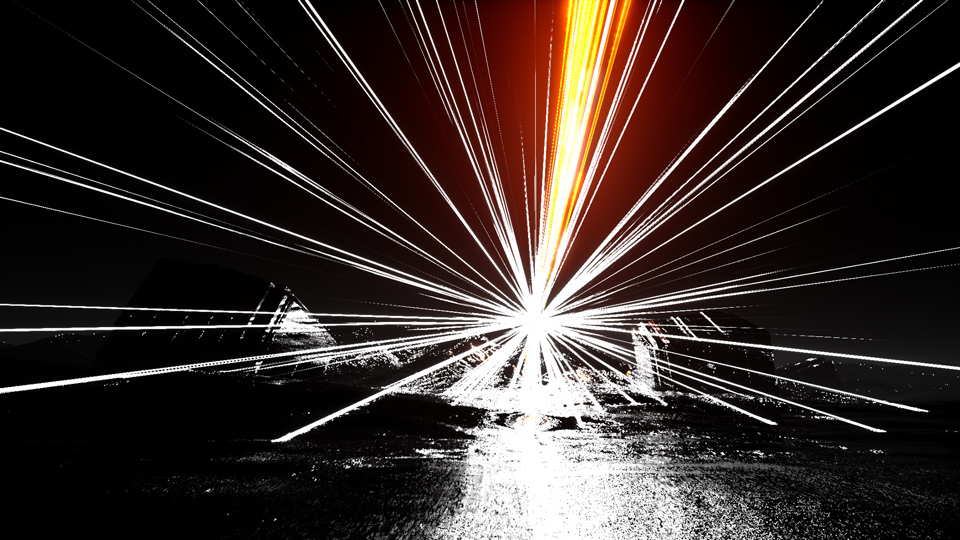Liquorice
by
dlareme
windows/needs a good computer/USD$8
"Connect programmable Node-Terminal machines and create a sonic singularity."
This was recommended to me by reader James Wood; I went to buy it on itch and found it already in my library, having purchased it and promptly forgotten about it back in October 2017, when it was released (I guess I was a little distracted). I don't know anything about dlareme, but their Itch author page shows several years of work leading up to this.
Let's see if I can get you to play it: it looks like it might be a 'walking simulator', but it isn't one. It's a first-person exploration game where you explore a sonic situation instead of a spatial one. And it sounds gorgeous — turn it up.

I often watch wonderful demoscene prods by groups like Farbrausch or Mercury (especially this one) and I find myself wishing that more of that sparse, material aesthetic could find its way into games, both in audio and video. I like timbre more than melody; I like texture more than detail. I feel like mainstream games since the 1980s have generally been more concerned with melody and detail, partly because those were more achievable aesthetic targets when you have to use chip synths, sprites and untextured polygons. Demoscene aesthetics are, and always have been, outside of the orthodoxies of videogame aesthetics.

After you start to play it, Liquorice seems to present itself as something of a musical puzzle like Fract, or maybe it's better to say that through experienced game-playing eyes, it's hard not to perceive it as one. You'll feel as though you are failing to grasp some basic ruleset that would push you steadily toward some narrative resolution. And for sure, new things will happen as you explore the space, weaving new tapestries of sound that you can be inside. But gradually you will realize that the sounds are the point, and that the pleasure of the piece is in listening attentively and reacting to what you hear, rather than in solving the puzzle.

I like to play games that are at peace with being confusing and opaque, where I can draw joy from every minuscule discovery, and develop a mental map of the game that feels uniquely personal to my own experience of it. This is like that — I can't tell you I understood what I was doing very well, and maybe you will experience it as something entirely different than what I heard and saw. The musical artwork that you and I experience through it will be different, not just in the details but in the textures, the layers of meaning, and what it provokes in us. That's the real power of an interactive medium.
